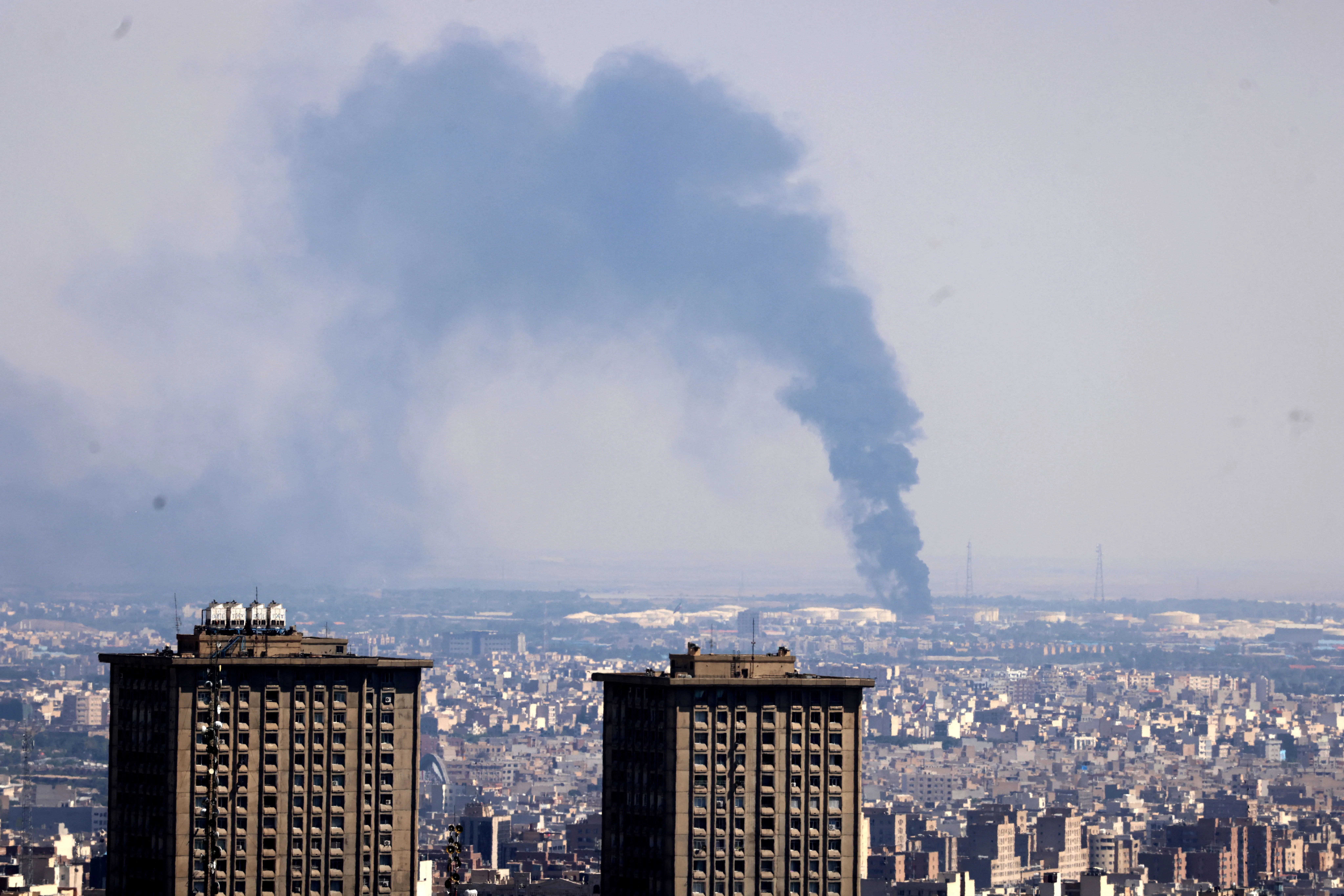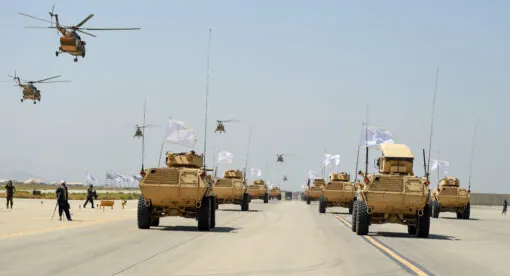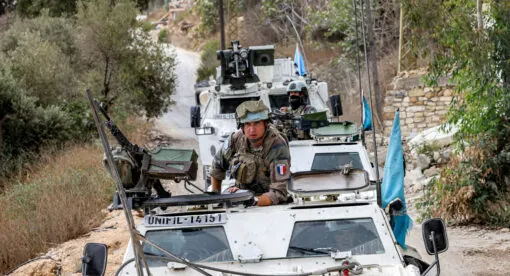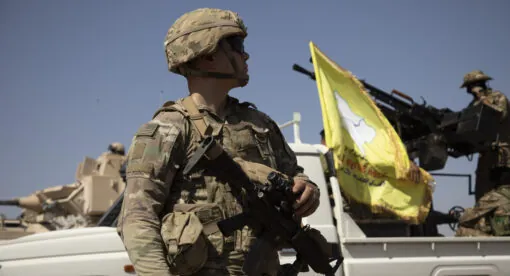Commentary from New Lines Institute’s Middle East experts: Nicholas A. Heras, Caroline Rose, and Dania Arayssi
Strikes exchanged between Israel and Iran have escalated in recent days, with death tolls and uncertainty rising in both states. Meanwhile, Israel is increasingly pressuring the United States to join its war efforts to eliminate Iranian nuclear capabilities and, perhaps, initiate regime change in Iran. In this real-time analysis, experts from the New Lines Institute react to recent developments and potential regional implications.
Nicholas A. Heras: Trump Must Intervene
Iran and Israel are pioneering a type of warfare by distance that will have wide-ranging consequences. Israel has utilized long-range strikes from aircraft, combined with clandestine operations inside Iran, to carry out a complex military campaign from far away. Iran is utilizing ballistic missiles and drone waves to strike at Israel to create airpower in lieu of possessing advanced aircraft. This conventional, non-expeditionary method of warfare between two non-contiguous states at distances of thousands of kilometers puts multiple states in the region, most them U.S. partners, in the direct path of the fighting. The risk of regional conflict due to the nature of the combat should be shaping President Donald Trump’s planning and should animate a renewed push for American diplomacy to end the fighting.
Iran’s leadership is under significant duress, and Israel is dominating the escalation ladder in the fighting. Israeli military action has not only heavily damaged its nuclear program but also degraded Iran’s air defense systems and ballistic missile and drone stockpiles. Iran’s proxy forces in the region are significantly weakened. The Islamic Republic’s regime will emerge from this war distracted by ensuring its domestic survival at the expense of its external power projection. The longer the fighting goes on, millions more people will be internally displaced in Iran and Israel, especially Iran, and tens of thousands of people could be killed and injured. The consequences of the war are dire and could become catastrophic, adding more human misery to a region already grappling with the consequences of civil wars, socio-economic and socio-political instability, and mass migration. Trump should decisively demonstrate that American stewardship in the Middle East means ending the cycle of conflict between Iran and Israel.
Caroline Rose: Expanded Fronts
Prime Minister Benjamin Netanyahu has laid out three main objectives for Israel’s ongoing military campaign against Iran:
- Dismantle Iran’s nuclear program
- Destroy its ballistic missile production capabilities
- Dismantle what he calls Iran’s “terror axis”
Much attention has been paid to whether Israel can realistically achieve the first two – both clear, tangible targets. However, the third objective deserves attention as it directly relates to the scale, scope, and longevity of this regional conflict.
Netanyahu has made it clear that Israel will not agree to a ceasefire unless all three goals are fulfilled, but the third goal is deliberately vague, echoing the open-ended language used in Israel’s operations in Gaza and its wider confrontations with Lebanon, Syria, and Yemen. By framing its actions against Iran as a broad counterterrorism effort without a clearly defined endpoint, it’s likely we’ll see multiple theaters repeatedly open and close, much like previous cycles we’ve witnessed. The United States should expect Israel to encroach into contested territories in Lebanon, Syria, as well as seek to counter Iran-backed proxy forces in Iraq and Yemen.
Dania Arayssi: The United States Must Condition Support for Israeli Operations in Iran
Trump’s call for Tehran residents to evacuate underscores the escalation in this conflict, raising critical questions about its scope and duration, as well as America’s role in it. The United States and Israel have agreed on the ends – ending Iran nuclear program in the Middle East – and it appears they have also agreed on military operations being the means. However, the United States cannot afford to continue supporting Israeli military operations in Iran, even if it means ending Iranian nuclear program, for several reasons related to U.S. national security and interests.
Netanyahu has engaged in war in Gaza to end Hamas for over two years without a serious political resolution, which has added pressure on the United States both domestically and internationally, not to mention Israel’s engagement in Lebanon, Syria, and Yemen. The United States cannot afford involvement in another major conflict while managing its relationship with China and Russia, conflict in Ukraine, and urgent domestic priorities. Both military and non-military involvement would drain U.S. resources and redirect strategic attention from core national security priorities. The diplomatic costs extend throughout the Arab world: Countries including Jordan, Egypt, the UAE, and Saudi Arabia have explicitly called for de-escalation despite their normalization with Israel. Ignoring these calls would jeopardize decades of relationship-building between the United States and the Arab world.
Any U.S. support for Israel’s military operations against Iran must be strictly conditioned on clearly defined objectives, realistic timelines, and measurable goals for success. This shift in approach can be achieved through direct, high-level diplomatic and intelligence communication and cooperation between American and Israeli leadership to establish these operational parameters and accountability measures upfront. While this conditionality would represent a significant shift in U.S. foreign policy toward Israel, it is necessary to protect America’s reputation, international standing and core national security priority. This approach would prevent another open-ended conflict that damages America’s reputation, endangers civilians in Iran and the region, and increases the probability of a wider regional conflict.
The views expressed in this article are those of the authors and not an official policy or position of New Lines Institute.








